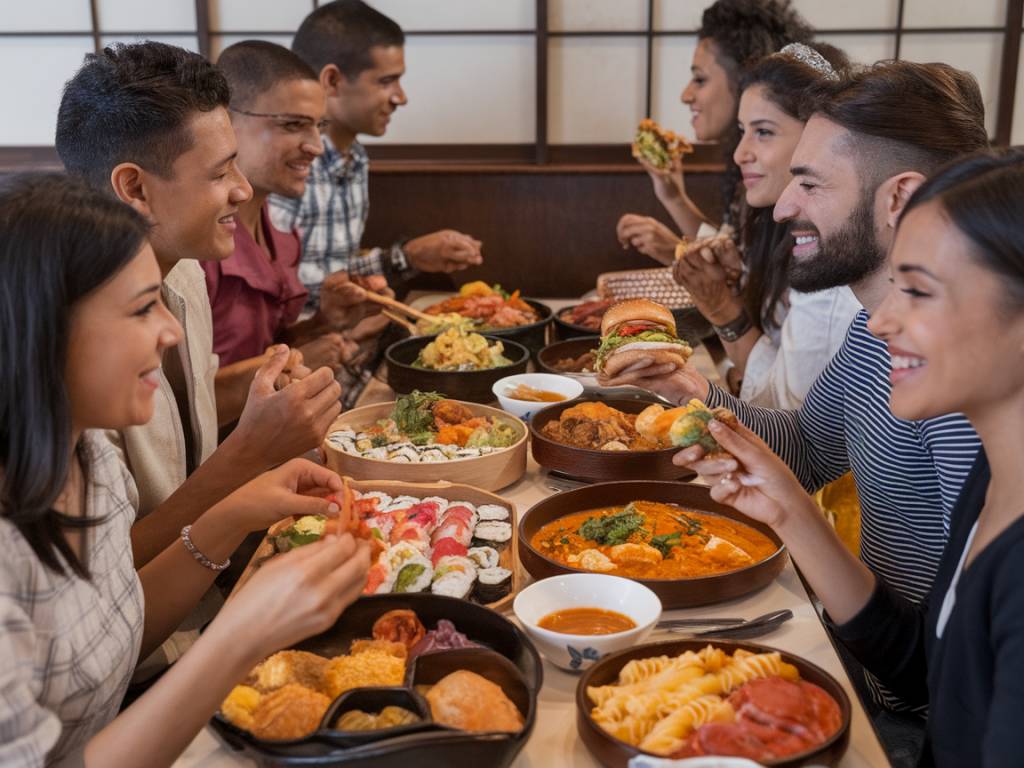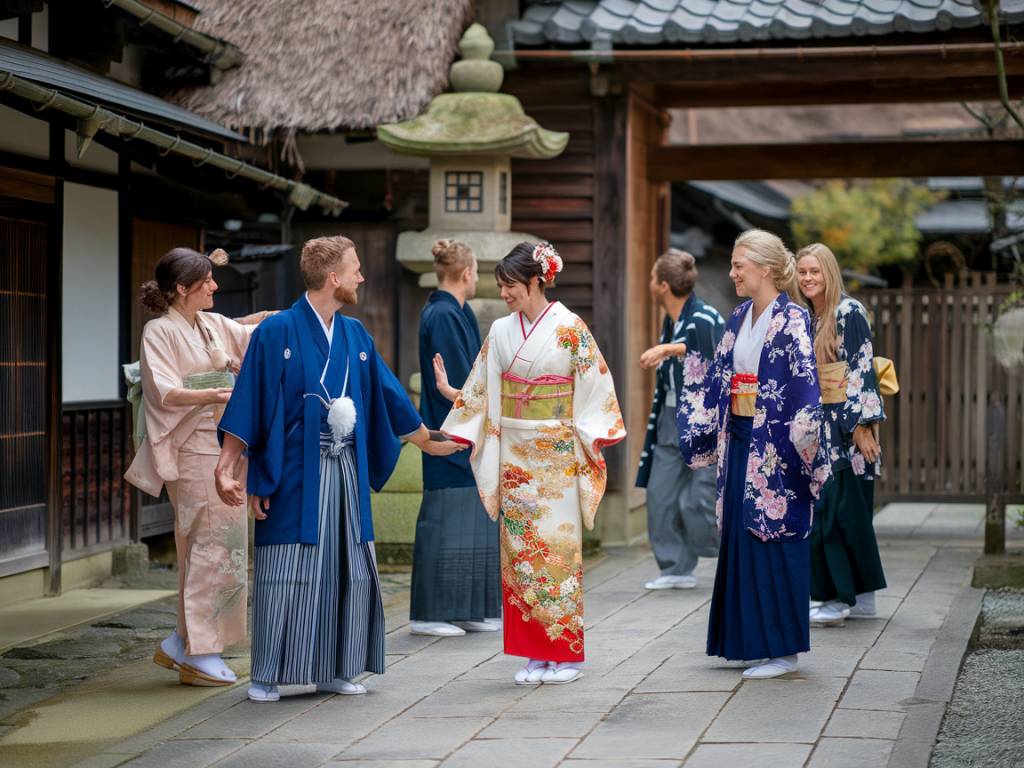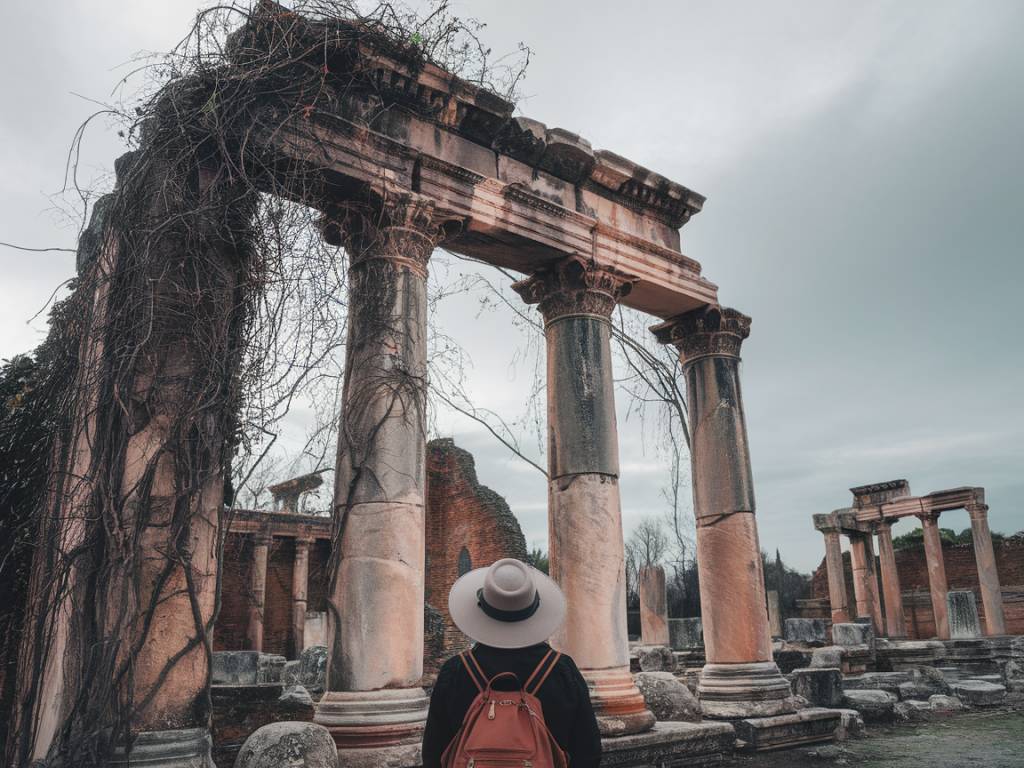Understanding Cultural Etiquette
Traveling the world opens our minds to new experiences, diverse cultures, and different ways of living. However, such encounters often come with unique social norms and expectations. To ensure respectful and enjoyable interactions, it is crucial to understand cultural etiquette—a set of societal guidelines that dictate how people should behave in specific cultural contexts.
Asia: A Region of Respect and Tradition
Asia is a continent rich in history, tradition, and cultural diversity. Each country has its unique customs, but many share common values such as respect for elders and a strong emphasis on community.
Japan: Punctuality and Politeness
In Japan, punctuality is paramount. Arriving on time for meetings, gatherings, and even social appointments is seen as a sign of respect. Moreover, bowing is an essential aspect of Japanese etiquette. It is used as a greeting, a thank you, and an apology. The depth and duration of the bow can signify various levels of respect.
China: The Importance of Face
In China, the concept of « face » (面子, miànzi) is incredibly important. It refers to one’s reputation and social standing. Publicly criticizing someone can cause them to « lose face, » which is deeply frowned upon. Instead, diplomacy and indirect communication are often employed to address sensitive issues.
India: Navigating Social Hierarchies
India boasts a rich cultural heritage, but social hierarchies can play a significant role in interactions. Respect for elders and hierarchical structures are pivotal. Additionally, using the right hand for eating and giving or receiving items is customary, as the left hand is considered unclean.
Europe: Diverse Traditions Across Nations
Europe offers a tapestry of cultural norms, each shaped by its own history, geography, and societal values. From formal dining etiquette to everyday greetings, understanding these nuances can greatly enhance your travel experiences.
France: Dining Etiquette
France is known for its culinary excellence, and dining etiquette is taken seriously. It is polite to say « bon appétit » before starting a meal. Keeping your hands (but not elbows) on the table and not slurping your food are important dining manners. Additionally, it is common to finish all the food on your plate as a sign of appreciation for the meal prepared.
Germany: Punctuality and Directness
In Germany, punctuality is highly valued in professional and social settings. Being late is often viewed as disrespectful. Additionally, Germans are known for their directness. Honesty and straightforward communication are appreciated, often leaving little room for ambiguity.
Italy: The Art of La Dolce Vita
Italians take pride in the concept of « la dolce vita » or « the sweet life. » Socializing over meals is a common practice, with lunch and dinner being key times for family and friends to gather. Greetings are warm, usually involving a kiss on both cheeks for close acquaintances. Dress code also holds significance; Italians tend to dress smartly and pay attention to their appearance.
Middle East: A Region Steeped in Tradition
The Middle East is a region where tradition and modernity often coexist. Understanding local customs and traditions is essential to navigate social interactions respectfully.
United Arab Emirates: Respect and Modesty
In the UAE, respect and modesty are highly valued. Dressing modestly is crucial, especially for women, to respect local customs. Public displays of affection are generally discouraged. Additionally, using the right hand for eating and passing items is a common practice.
Saudi Arabia: Religious Respect
Saudi Arabia places a strong emphasis on Islamic traditions. During prayer times, many businesses close temporarily. Visitors should be mindful of these times and show respect. Additionally, women are expected to dress conservatively, often covering their hair and wearing loose-fitting clothing.
Turkey: Hospitality and Warmth
Turkish hospitality is renowned. Guests are often treated with great respect and generosity. When visiting a Turkish home, it is customary to bring a small gift. Shoes are usually removed before entering the house. Furthermore, offering tea or coffee to guests is a traditional sign of hospitality.
Africa: A Continent of Diverse Customs
Africa is a continent of immense cultural diversity. Each region and country has its own unique traditions and social norms that are important to understand.
South Africa: Rainbow Nation Etiquette
South Africa, known as the « Rainbow Nation, » has a rich mix of cultures. When greeting someone, a firm handshake with a warm smile is customary. Additionally, addressing people by their titles and last names shows respect. In social settings, bringing a small gift like flowers or chocolates when visiting someone’s home is appreciated.
Kenya: Respecting Elders
In Kenya, respecting elders is a deeply ingrained cultural norm. When greeting an elder, it is polite to bend slightly or bow as a sign of respect. Handshakes are common, and using both hands to offer a handshake signifies extra respect.
Nigeria: Social Hierarchies
Nigeria has a complex social structure with strong hierarchies. Showing deference to those in higher positions, whether in age or status, is customary. In interactions, using titles and surnames until invited to use first names is a sign of respect.
Americas: A Blend of Modernity and Tradition
The Americas encompass a wide range of cultures, from the indigenous traditions of Latin America to the modern, diverse cultures of North America.
United States: Personal Space and Informality
The United States is known for its emphasis on personal space and informality. It’s common to keep a comfortable distance during conversations, and hugs or handshakes are typical greetings. The U.S. values direct communication, often favoring a straightforward and informal approach.
Brazil: Warmth and Expressiveness
Brazilians are known for their warm and expressive nature. Physical contact like hugging and kissing on the cheek is common, even during initial meetings. Punctuality is more relaxed compared to other cultures, especially in social settings. Additionally, bringing a small gift when invited to someone’s home is considered polite.
Mexico: Family and Traditions
In Mexico, family plays a central role in daily life. Greetings often involve a hug and a kiss on the cheek, especially among close friends and family. Dining etiquette includes waiting for the host to say « buen provecho » before starting the meal and keeping your hands visible during dining.
Oceania: Casual and Laid-Back Norms
Oceania, encompassing Australia, New Zealand, and the Pacific Islands, is known for its laid-back and friendly atmosphere. However, each region has unique customs.
Australia: Relaxed and Informal
Australians generally favor a relaxed and informal approach to social interactions. First names are often used from the outset, and a friendly handshake is a standard greeting. Tipping is not as customary as in the United States, but it is appreciated for exceptional service.
New Zealand: Respect for Maori Culture
In New Zealand, understanding and respecting Maori culture is crucial. The traditional Maori greeting, the hongi, involves pressing noses together. Showing respect for the land and nature is also important, aligning with the Maori concept of kaitiakitanga (guardianship).
Fiji: The Culture of Bula
Fiji is famous for its hospitality, often expressed through the word « bula, » which means « hello » or « welcome. » Fijians are known for their warmth and generosity. When visiting a Fijian village, it is customary to present a gift, often in the form of kava root, as a sign of respect.
Understanding cultural etiquette enriches travel experiences by fostering respect, cooperation, and mutual understanding. As you explore the world, being mindful of these diverse practices can lead to more meaningful and respectful interactions. Whether you’re traveling for leisure or business, investing time to learn about local customs can greatly enhance your journey.






